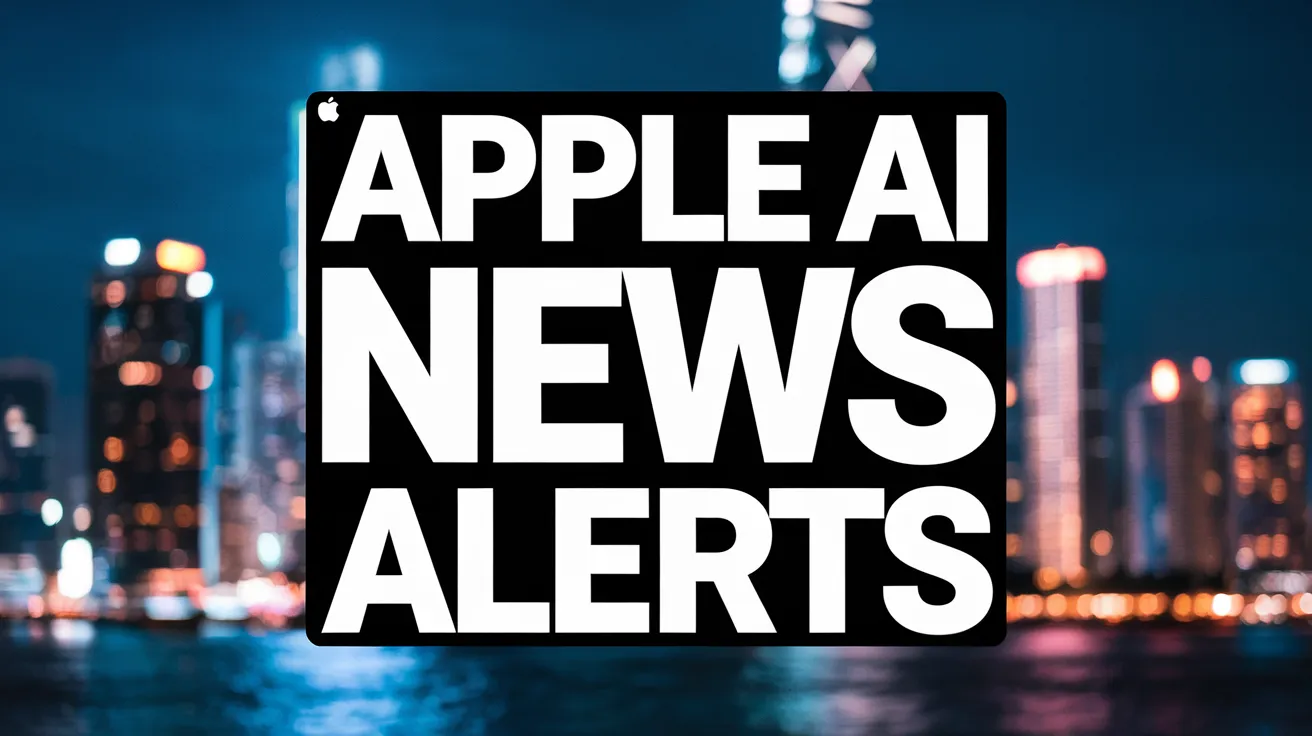Apple to Update AI News Alerts After Errors

Apple has announced plans to update its artificial intelligence feature following numerous reports of inaccurate news alerts that have confused and misled users. The updates will specifically address issues where AI-generated summaries claimed false information, including allegations that a man accused of murdering a US healthcare executive had taken his own life, and that tennis star Rafael Nadal had come out as gay.
False News Alerts Raise Concerns
The update comes in response to significant backlash, particularly a formal complaint made by the BBC in December. Users received notifications suggesting that Luigi Mangione, implicated in the murder of UnitedHealthcare’s CEO, Brian Thompson, had killed himself. However, Mangione is alive and incarcerated in a Brooklyn prison.
Additional Inaccuracies Highlighting AI Challenges
Adding to the scrutiny, just last week, Apple’s AI system inaccurately summarized BBC notifications by claiming Nadal had publicly come out as gay. Furthermore, it mistakenly announced Luke Littler’s victory in the PDC World Darts Championship even before the event commenced. Such misrepresentations have caused concern over the reliability of the news provided through the Apple platform.
BBC’s Urgent Call for Accuracy
The BBC voiced its dismay regarding Apple’s AI summarizations, which failed to reflect their original content accurately and, in some cases, contradicted it. “It is critical that Apple urgently addresses these issues as the accuracy of our news is essential in maintaining trust,” stated the BBC. This sentiment highlights a larger issue concerning the responsibility of tech companies in the dissemination of information.
Wider Implications for Journalism
This narrative is not isolated; in November, inaccuracies were similarly noted when a ProPublica journalist flagged an erroneous summary from the New York Times suggesting that Israeli Prime Minister Benjamin Netanyahu had been arrested. Such incidents further illustrate the far-reaching implications of AI-generated information on journalism and public trust.
Apple’s Response and Future Actions
In response to the scrutiny, Apple indicated its intentions to roll out a software update in the coming weeks, which aims to clarify when notifications are AI-generated. “Apple Intelligence features are in beta, and we are continuously making improvements based on user feedback,” the company stated. However, the effectiveness of these updates remains to be seen.
Criticism from Journalistic Bodies
Critics from the National Union of Journalists (NUJ) expressed that a mere update is insufficient. They have called for the complete removal of the AI feature, emphasizing the need for accurate reporting at a time when misinformation is rampant. Laura Davison, NUJ’s general secretary, asserted that Apple must act swiftly to avoid contributing to the ongoing misinformation crisis.
The Responsibility of Tech Companies
Similarly, Reporters Without Borders raised concerns that merely labelling content as AI-generated places the onus of verification on users, which could lead to greater public mistrust. Vincent Berthier, head of their technology and journalism desk, pointed out, “AIs are probability machines, and facts can’t be decided by a roll of the dice.” This statement underscores the significant responsibility tech companies hold in providing reliable information.